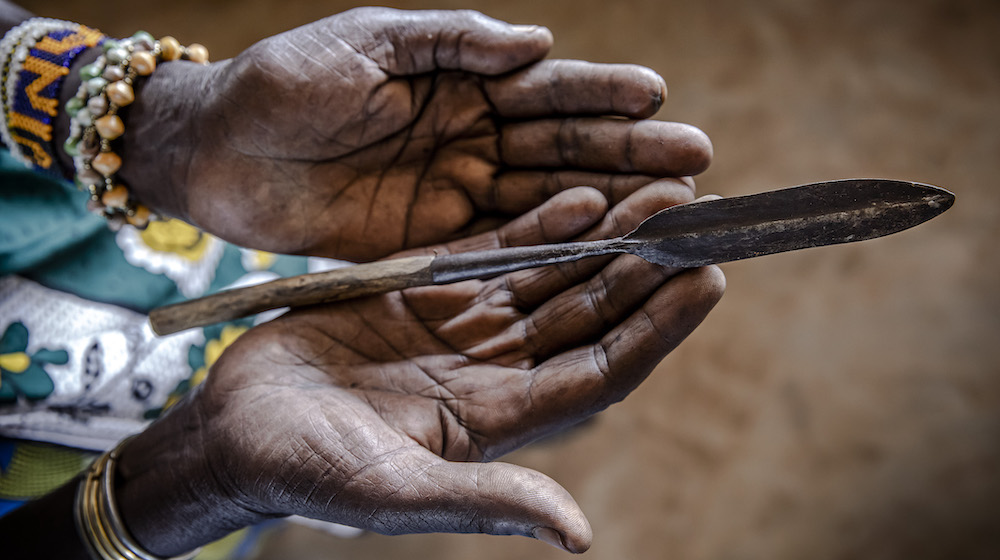Hope A Life's Fight Against Female Genital Mutilation (FGM) protects girls from this harmful cultural practice through comprehensive community sensitization, education about severe health consequences, rescue interventions, medical and psychosocial support for survivors, and advocacy for alternative rites of passage. We work with traditional communities to abandon FGM while preserving cultural identity and dignity.

The Crisis
In Kenya, 21% of girls and women aged 15-49 have undergone FGM, with rates reaching 98% in some communities. This harmful practice causes severe physical complications including infections, chronic pain, childbirth complications, and even death. Psychological trauma, loss of sexual function, and violation of bodily autonomy compound the harm. Despite legal prohibition, FGM persists due to deep cultural beliefs, social pressure, and lack of awareness about health consequences.
Our Holistic Strategy
We combine prevention, intervention, survivor support, and cultural transformation to end FGM while respecting community values and promoting positive traditions.
Community Sensitization and Education
Mass awareness campaigns educate communities about FGM's severe health consequences including infections, hemorrhage, obstetric complications, and psychological trauma. Traditional and religious leaders are engaged as champions for abandonment. Community dialogues create safe spaces to examine cultural beliefs, challenge myths, and commit to protecting girls. School-based programs teach children about bodily rights and empower them to resist pressure.
Alternative Rites of Passage
We collaborate with communities to develop alternative coming-of-age ceremonies that preserve cultural pride and community identity without cutting. These ceremonies include education, gift-giving, celebration, and public recognition of girls' transition to womanhood. By honoring tradition while eliminating harm, we facilitate sustainable abandonment of FGM.
Rescue and Emergency Intervention
Hotlines and community networks enable early reporting of planned FGM. Rapid response teams work with police and child protection services to rescue girls at risk. Safe houses provide temporary shelter during high-risk periods such as school holidays when cutting typically occurs. Legal intervention includes prosecution of perpetrators and issuance of protection orders.
Medical and Psychosocial Support for Survivors
Survivors receive comprehensive medical care including treatment for infections, pain management, and reconstructive surgery where appropriate. Trauma-informed counseling helps process psychological impacts including PTSD, depression, and body image issues. Support groups connect survivors for mutual healing and empowerment. Health education addresses reproductive concerns and childbirth planning.
Economic Empowerment for Families
Economic alternatives are provided to traditional cutters who rely on FGM for income. Vocational training and microfinance enable them to transition to other livelihoods. Income-generating projects for families reduce economic pressure to cut daughters for bride price or cultural acceptance.
Policy Advocacy and Legal Enforcement
We advocate for stronger implementation of Kenya's Prohibition of Female Genital Mutilation Act. Training for police, prosecutors, and judges improves handling of FGM cases. Research and documentation generate evidence for policy discussions. Cross-border collaboration addresses FGM tourism where families take girls to neighboring countries for cutting.
"My community planned to cut me during school holidays. Hope A Life's rescue team intervened, took me to safety, and helped my family understand the dangers. Now I'm in school, healthy, and speaking out to protect other girls." - Faith, Program Beneficiary
Impact & Future
We've protected 4,100+ girls from FGM, rehabilitated 620+ survivors, and engaged 150 communities in abandonment efforts. FGM prevalence has declined by 40% in intervention areas. Traditional cutters have transitioned to alternative livelihoods. Communities are celebrating girls through alternative ceremonies. We're expanding to high-prevalence regions, strengthening survivor support services, and amplifying advocacy for complete eradication of FGM in Kenya.